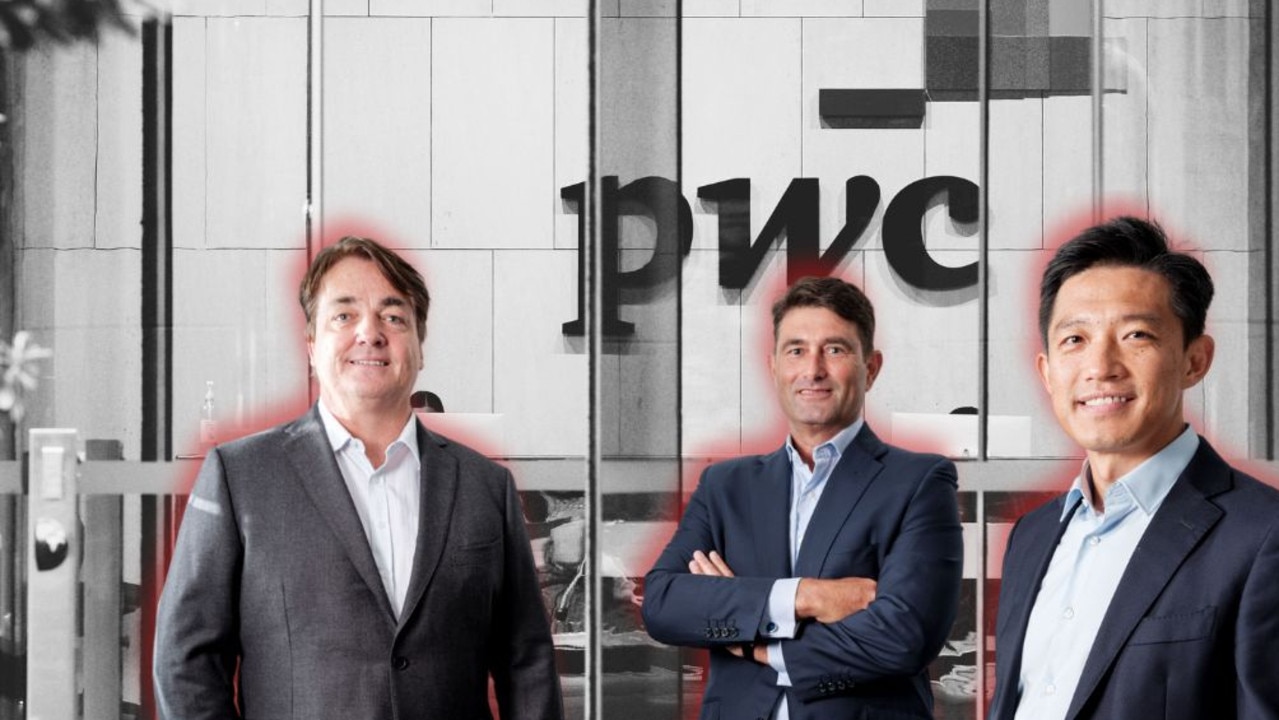Unlearn and prosper: the bad habits holding you back
Aged in their 50s, Jack and Rhonda broke free from the financial habits they thought were set in stone. See how they transformed their financial outlook.

Business
Don't miss out on the headlines from Business. Followed categories will be added to My News.
Changing behaviours can be bloody hard. Particularly those ones that were almost bred in through your genes.
Most of the time, it’s not actually genetic, but what you’ve picked up through your childhood and early adulthood, in what is referred to as “learned behaviour”.
Early on in life, learned behaviour is predominantly through your parents. (Later, it becomes about friends.) You learn to do something because that’s the way your parents did it.
The way you cook pasta, your hobbies, what traditions are important in the festive season, how you pronounce words, or speak to people in authority.
Learned behaviour, from your parents, can be good. And not so good.
But inevitably, they limit you – they have become so ingrained, that you don’t question why or how you do them, or even whether they are producing a result that you’re happy with.
Often, you don’t stop to think if there was a different way that would be better, possibly far better.
And if you think about this when it comes to your finances, it can be scary.
What did you learn from your parents about money? Being cautious, a spendthrift, to live beyond your means, or to budget assiduously?
When you got your first real job, did you follow your new mates to the pub every payday and blow a good portion? Or did you already have a financial plan in mind and put a portion away each month?
Changing your footwork
Whatever you’ve learned – good, bad or indifferent – changing those behaviours can be hard.
Even when it’s generally considered to be good financial behaviours, such as regular saving, or paying down debt. “Positive” actions can also be limiting, or less than ideal.
Sometimes, it’s not until someone or something (like a book) explains things to you differently, that you might open your eyes to new possibilities.
Let’s me introduce James and Rhonda. They were in their 50s when I met them. They’d both had previous marriages. And they both came into this new marriage with a house each, which included some debt.
When they decided to move in together, they chose to live in James’s house and rented out Rhonda’s. Her house had plenty of equity and a very small debt, so, as an investment, the property was positively geared and they were paying tax on the income.
James’s home, however, had considerable debt.
Might they live in Rhonda’s house at some stage? No. So why were they holding on to it?
Rhonda had lived in it and she thought it would be a good investment property. They were pretty happy with that call. They’d pay down the debt and then have an income stream.
“You don’t sell good property. You hold on to it.” Parents from any generation could hand out that advice. And on the face of it, it makes sense.
But what if it’s costing you a fortune. What if there were other options that could, for similar risk, follow a similar path, but improve the final outcome by tens of thousands of dollars a year?

Thinking differently
No, it’s not snake oil. Sometimes, it’s just showing someone that what they’re doing is good. But there are better ways.
I put to Rhonda and James a different scenario. The benefits took a bit of explaining, given they had assumed they would hold on to the property for a while and that sort of “you-don’t-sell-property” mentality.
(The following advice was taking into account their circumstances of the time. Don’t take it as advice to you.)
What if they sold Rhonda’s former home (which was still capital gains tax-free), use that money to pay down the debt on their joint “home”, then buy another investment property? This new property would be fully funded with debt and have negative gearing tax advantages.
This should achieve a few things.
They would end up with a similar amount of debt. However, now all would be tax-deductible, reducing the cost of the debt by, effectively, about one-third.
No actual home loan.
The rental income would be similar, but it would lead to a dramatic change in their tax position.
They would still be property investors, but far more tax efficiently, and this way owning a property that wasn’t going to give them heartaches watching tenants slowly degrade Rhonda’s former home.
The main upfront costs of doing this? Agent and marketing fees for selling the Rhonda’s home and stamp duty for buying the new property.
However, the change in deductibility on their debt alone was saving $10,000-$20,000 a year. So, they were ahead in just a couple of years.
It’s not a plan that will work in every situation. And for many, the idea of selling a home simply to buy another one, is difficult to get your head around.
But sometimes the numbers work well for individuals. As hard as it was to get their heads around, they just kept asking questions until they felt they understood it. And off they went.
Change of lifestyle
A few years down the track, as the savings kicked in, they started to see the other life options available to them.
One was to reduce working hours. Another was to have more regular holidays. They ticked off both.
At the same time, they could make further contributions to super, reduce their overall tax, and change how their super was invested to reduce fees.
Sounds simple enough?
Sure, but this was about a decade ago. Public confidence in super was at a low at the time, due to years of constant negative tinkering to the rules by both colours of government.
The prevailing view was to NOT put extra money into super. Despite all of the tax advantages, the constant rule changes created some challenges in convincing people to go harder with their super.

I believe …
James and Rhonda were, like many at the time, sceptical of super.
But … they listened. Super is, and always will be, one of the most tax-effective methods of saving for retirement. Governments are prepared to tax superannuation less than regular income, to help people save for their retirement.
The quid pro quo of that for super members is that they can’t touch it until they are 60 or 65.
They listened, adding more into super, saving tax and reducing their super investment expenses.
Disaster strikes
Then in 2022, disaster struck.
James was diagnosed with prostate cancer and required a radical prostatectomy – removal of the prostate.
The surgery had complications and James was in and out of hospital over the next few months. It was a scary time for them both.
Insurance is, in general, a grudge purchase. Yes, we purchase car and home insurance – though every time there’s a bushfire, like the ones going on in California right now, it stuns me how many people don’t insure their homes and contents – but even then people feel forced into it.
When it comes to life insurance, while there are some people who go to advisers specifically the get insurance, because they fear what would happen, advisers are generally having to “sell” insurance and the benefits and feeling of security that comes with it.
Some can’t get their heads around the cost. Others believe Australia’s health system is so good that “she’ll be right”.
When I met them, James had very limited insurance, but no trauma insurance (insurance for health events such as heart attacks, cancers and stroke). Rhonda had none.
James and Rhonda listened, were concerned the risks they had been unwittingly running to that point, and understood the need to cover themselves for some events that could occur – death, disablement and disease – that could rip their finances to shreds.
When the cancer struck, a payout was quickly confirmed. And they could do what they needed to do – concentrate on James’s recovery.
Making complex simple
With Rhonda and James, often the discussions of what they should do would take extra time to explain. The recommendations went against their ingrained “learned behaviour”, picked up over the years, probably from a very young age, and reinforced with life experiences and discussions with friends and colleagues.
Unlearning 50-odd years’ worth of financial beliefs and life experience can be hard. Most people don’t even try. You can lead a horse to water, but you can’t make it drink.
Some “advice” we receive early in life is, let’s say, “not harmful”. Such as saving and paying down debt.
But, there are reasons some people become wealthy. And almost no-one can save themselves to a fortune. It requires investing, taking some risks and sacrificing.
And, for most people, unlearning what you’ve been taught.
Bruce Brammall is both a financial adviser and mortgage broker and author of books including Debt Man Walking. E: bruce@brucebrammallfinancial.com.au.
DISCLAIMER: Information and opinions provided in this column are general in nature and have been prepared for educational purposes only. Always seek personal financial advice tailored to your specific needs before making financial and investment decisions.
Originally published as Unlearn and prosper: the bad habits holding you back






